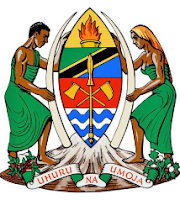
he Ministry of Education, Science, Technology and Vocational Training is a ministry of the Tanzanian government responsible for the provision of education, vocational training and policy on science and technology.
Vision:
An educated Tanzanian with the requisite knowledge, skills, ability and positive attitude that add value in National development.
Mission:
To put in place and strengthen structures and procedures which will enable a country to get educated and continuous learning Tanzanians that add value in National development.
The Vocational Training System
The Vocational Education and Training Authority (VETA) is an autonomous Government Agency established through the Act of Parliament No. 1 of 1994 Chapter 82 [Revised in 2006]. The overall objective of establishment of VETA is to oversee the Vocational Education and Training (VET) system in Tanzania. It is charged with the responsibilities of promoting, coordinating, providing, regulating and financing VET in the Country.
Vision
The vision of VETA is, “Tanzania with sufficient and competent artisans.”
Mission
The mission of VETA is, “To ensure quality vocational skills by providing, regulating, coordinating, promoting, and financing vocational education and training for national socio- economic development.”
Core Values
i. Demand driven services;
ii. Service Excellence;
iii. Transparency; and
iv. Team work.
Roles Of VETA
i. Providing vocational education and training;
VETA provides training through 33 vocational training centres and institutes that it owns. Also, it provides training to vocational teachers through its Vocational teachers Training College in Morogoro.
ii. Coordinating vocational education and training;
VETA coordinates more than 700 VET institutions owned by other VET providers in the country, providing training in form of long courses, short courses and tailor-made courses. Also, VETA conducts Labour Market Surveys to determine skills demanded by labour market.
As well, the Authority establishes and maintains close linkage and partnership with other training providers at national and zonal levels.
iii. Regulating vocational education and training;
VETA regulates provision of vocational education and training in the Country through Registration of VET Institutions; Accreditation; Setting Standards; Curriculum Development; Auditing for Compliance; Assessment; and Certification.
iv. Financing and managing VET fund;
VETA finances and manages VET Fund for Vocational Education and Training. The main source of VET Fund is employers contribution of Skills Development Levy (SDL). Employers with four and above employees contribute 6% of their employees salaries as SDL.
Some other sources of VET fund are Government development projects; development partners contributions; funds from internal sources like income generating activities and training fees.
v. Promoting Vocational Educational and Training
VETA is charged with the role of promoting vocational education and training in the Country. VETA believes that the public can support VET if it is provided with adequate information about VET goals and activities. Promotion is carried by communicating VET to different stakeholders including the Government, parents, employers, employees, and donors. Other targets include current and prospective trainees, instructors; VET graduates legislators, trade unions, NGOs and the media.
VETA uses different media in communicating VET to stakeholders: through advertisement, VET week activities, public presentations, trade fairs and exhibitions and publicity. Others include newsletters, annual reports, brochures, VET catalogues, website and other promotional materials.



No comments:
Post a Comment